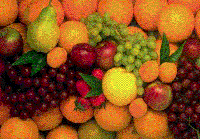Live Smart  | home
| home
 | home
| home
Green Vibrance Ingredients | Green Vibrance Product Pricing | Phyto Nutrition - What it is and why it is good for you | Glycemic Vibrance H | Green Vibrance - Family Size, Capsules, Single Packets
Customer Service
Disclosure & Policy
1(888)875-3582
orders, questions, fax
9:00am - 5:00pm CST
|
 Email Invoicing with Paypal,
No Paypal account required
credit card by phone
|
What is Popular?
Herbal Adjustment Joint Pain
BPW and BCW
Blood and Organ Cleansing
CCE-W Bowel cleanse
|
|
High Quality
Thyroid Balancing
Bulk and
single jars
|
Supplements
Glyconutrients
Spiritual
Health
Pet Corner
Living Green
|
Tea Master
learn how
Pure Herbs
|
Organ
Cleansing
|
Cold Remedies
Articles
and more
|
Herbal Remedies
Instruction
Articles
|
 Young Living
Ancient Biblical Oils
|
Journey Well
 |
 Lymphatic Detoxification through massage and thermatherapy
|
www.blueirissanctuary.com 888-875-3582 Nutritional Consulting ~ Master Herbalist available
Phyto Nutrition - What it is and why it is good for you
 What do you do if you cannot eat the recommended amount of vegetables in a day?
What do you do when you don't like to eat vegetables?
What do you do when eating organic is either too expensive or not available?
|
LIVING FOOD-THE PHYTOCHEMICAL REVOLUTION
If you are taking probiotics therapeutically (for example, to reinoculate the digestive tract after antibiotics or as part of an anti-infection strategy, for instance, to kill off candidiasis), you may need three times the amount needed for general health promotion. Higher levels of probiotics and prebiotics such as FOS do sometimes result in increased flatulence, at least in the short term. This is not necessarily a bad sign-as less desirable organisms die off, symptoms sometimes get worse before they get better.
Living food in action
Every time you eat a combination of fresh, living foods, such as fruit and vegetables, you are giving yourself a cocktail of essential vitamins, minerals, amino acids, antioxidants, enzymes, probiotics, and phytochemicals that work together synergistically to promote your health. The idea of separating out each ingredient and then treating it like a drug to cure a specific illness is not just impractical but nonsensical. The moral of this story is to eat foods that vou can pick out of the ground or pluck from a tree.
Good habits to develop to ensure that living foods, and the nutrients they contain, form a regular part of your diet
The Longer you keep them, the more their nutrients are destroyed.
bread, especially those cultured with lactobadllus or bifodobacteria.
phytochemicals
None of what is recommend in this site is to be in leu of proper medical help. We do not treat disease in any way. We are here to educate you and give you information on the alternative processes available to you so that you can make informed decisions and take charge of your own health issues. We do not accept any liability for the advise and products we offer. We are required to advise you that none of the information or products offered on this site is accepted by the AMA nor the FDA. Please be advised and always seek professional medical advise when undertaking any suggestions in this site.
©2013 All Rights Reserved.
This Web site contains copyrighted material,
trademarks, sale of, create derivative works of, on in any way exploit, in whole or in part, any
material is strictly prohibited. All photo's are owned by Blue Iris Sanctuary
|